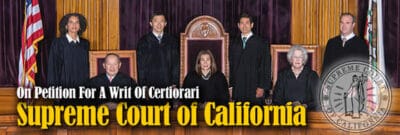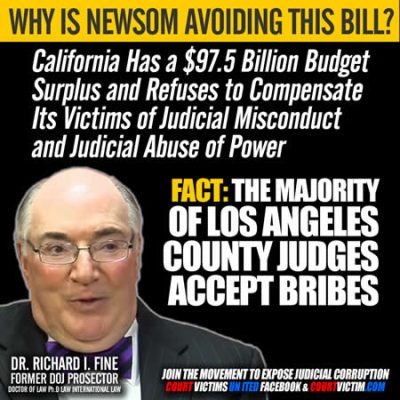Supreme Court of the United States CAROL PULLIAM, Petitioner vs. USC On Petition For A Writ Of Certiorari RICHARD ISAAC FINE

“Richard I. Fine Presents the argument against paying County or Court Supplemental or Local Judicial Benefit Payments to Judges, to the US Supreme Court.” ========================================================================================= In The Supreme Court of the United States ——————————— ♦ ——————————— CAROL PULLIAM, Petitioner, vs. UNIVERSITY OF SOUTHERN CALIFORNIA, Respondent. ——————————— ♦ ——————————— On Petition For A Writ Of Certiorari To The Supreme Court Of The State Of California ——————————— ♦ ——————————— PETITION FOR WRIT OF CERTIORARI ——————————— ♦ ——————————— RICHARD ISAAC FINE, ESQ. P.O. Box 789, 1187 Coast Village Rd., Ste. 1 Santa Barbara, CA 93102-0789 Telephone: (310) 622-6900 Email: [email protected] Counsel for Petitioner Carol Pulliam ================================================================================================== COCKLE LEGAL BRIEFS (800) 225-6964 WWW.COCKLELEGALBRIEFS.COM i QUESTION PRESENTED Do state court trial judges, court of appeal justices and supreme court justices “war against the (United States) Constitution” by denying state litigants Fourteenth Amendment Constitutional due process when each and/or all these judicial officers did not disclose and recuse themselves as required by state law, state Code of Judicial Ethics and/or other state or federal requirements when he/she: (1) currently receives or in the past received payments from: (a) the county currently paying or paid the Respondent for Respondent’s services; and/or (b) an entity jointly offering services with Respondent; (c) a partner, representative and/or affiliate of the Respondent; and/or (d) another county; and/or (2) as a lawyer who personally represented and/or his/her firm represented the county making the payments to the judges in cases involving: (a) the legality and/or the constitutionality of the payments; and (b) subsequent statutes relating to the payments. ii LIST OF PARTIES All parties appear in the caption of the case on the cover page: (1) Carol Pulliam; and (2) University of Southern California. MSS Nurses Registry was a defendant in the trial court. CORPORATE… Read More




